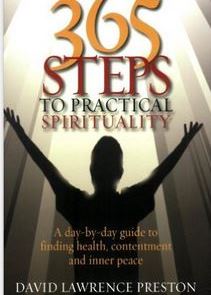Would you like to be able to withdraw from daily hustle and bustle whenever you choose and return feeling calm, centred and in tune with the universal flow? It’s perfectly possible. Millions do it every day through meditation. Meditation used to be regarded with suspicion in the West, but nowadays people from all walks of life are discovering the benefits for themselves.
What meditation is
Meditation means ‘to focus one’s thoughts’ or ‘engage in contemplation or reflection’. It differs from guided visualisation, in which a group leader suggests thoughts and mental images for others to follow, usually reading from a script.
Sister Jayanti of the Brahma Kumaris World Spiritual University, a respected teacher, defines meditation:
‘Meditation is the gathering of self-knowledge, the pathway back to inner peace, the restoration of love for yourself, rediscovering that place of eternal, unchanging stillness within, and reaching the highest level of conscious awareness.’
The purpose of meditation
The purpose of meditation is to cultivate inner peace and find the spiritual guidance available to us from within. You are enriched by the wisdom and power it can bring. The proven benefits of meditation are available to anyone who genuinely practises with an open mind.
- Rejuvenates the body, releases tension and improves sleep and vitality.
- Improves concentration.
- Brings freedom from anxiety, fear, guilt, anger and other harmful emotions.
- Makes us more accepting, tolerant, forgiving and loving towards others.
- Puts us in touch with our true purpose.
- Brings greater awareness of self and others.
- Heightens intuition and creativity.
- Keeps us centred in the here and now.
- Allows us to detach from emotions and thoughts and observe them as if happening to someone else.
- Brings a feeling of connectedness with all things.
Quite a list, isn’t it?
When to meditate
The best times to meditate are first thing in the morning and in the evening. Start with short periods of 10-15 minutes. Gradually increase this to twenty to thirty minutes per session, or longer if you feel at ease.
Practise daily. If you’re pressed for time, do less rather than none at all. Regular short meditations are more beneficial than infrequent long sessions.
Never meditate if you are tired, hungry or stressed or after a large meal or alcohol.
Where to meditate
With practice, it’s possible to meditate anywhere, but ideally find a place where you will be undisturbed, unplug the telephone, switch off your mobile and ask your friends and family to leave you alone. The fewer distractions, the better.
Wear loose, comfortable clothing sit upright with spine erect.
Choose a method that suits you
There are hundreds of types of meditation. Start with a few that are appeal to you. Once you’ve mastered these, you may like to try others.
The following are the most common:
- Vipassna: the classic Buddhist mediation. Focus on the breath. Slowly counting down from 10 to 1 with each exhalation or just observe the breath.
- Mantra meditation: mentally repeat a word or phrase that carries a spiritual idea, such as ‘peace’, ‘one’, ‘calm’, ‘ohm’ and so on. Some schools give (or sell) their students a ‘sacred’ sound, usually a Sanskrit word or phrase.
- Object meditation: Focus your gaze on an object such as a candle, picture, flower or even a spot on the wall. Alternatively, close your eyes and focus on an imaginary object.
The procedure
- Affirm that you are relaxed and peaceful, then take your attention to your breathing. Don’t try to change it – just be aware of it. Imagine you are breathing in Creative Intelligence and connecting to your Inner Power.
- Maintain a passive attitude. Don’t try to stop thinking, just watch your thoughts and stay detached. Whenever your mind wanders off, gently bring it back. Gradually your thoughts will slow down.
- Follow your chosen method.
- Finish by opening your eyes and gently bringing your awareness back to your surroundings. When ready, get up and ease yourself back into the business of the day.
The meditation experience
You may find your first few meditations frustrating. The mind is easily distracted, but don’t worry, a wandering mind is part of the process.
At first you will probably experience much the same state of mind in meditation as you do in life generally. If, for example, you are prone to anxiety, your early meditations may not be calm. But keep going -with practice it gets easier.
Don’t expect every meditation to be the same nor progress to be smooth. All meditators, however well-practiced, find that some sessions are better than others.
…………….
The Buddha said, ‘Meditate and be mindful, and all else will follow.’ So take daily time for quiet reflection. Focus on your Inner Power and let it guide you.
©David Lawrence Preston, 17.11.2016
Follow me on Facebook and Twitter ‘David_L_Preston
Visit my blog at www.davidlawrenceprestron.co.uk
How to Books, 2007


Leave a Reply